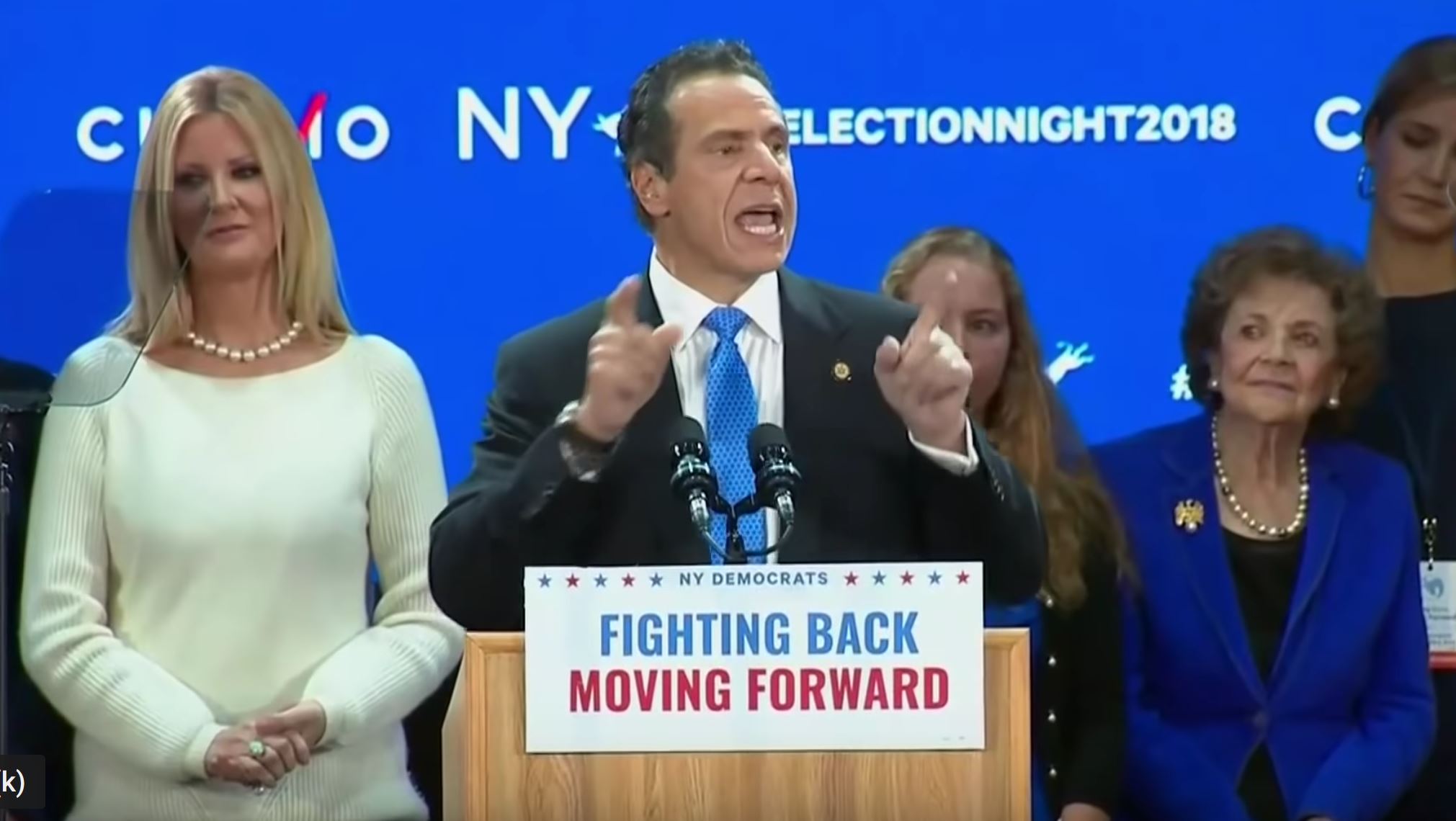It’s getting harder to be an environmental extremist these days. Just ask New York Governor Andrew Cuomo.
The governor of the nation’s fourth most populace state is under intense pressure from Green activists in recent months. They are impatient about what they consider his lackluster timetable in forcing the Empire state to go completely fossil fuel-free. The latest example is they want the governor to block natural gas pipelines from supplying cleaner, cheaper energy to businesses and residents throughout the state.
This clash portends ongoing battles between Green extremists and those who hold that environmentalism and traditional energy use are manageable, not in conflict, and are essential for living and prospering well into the foreseeable future.
Governor Cuomo has so far been accommodating the extreme environmental agenda. He has banned hydro-fracturing even though the state has an enormous portion of the gas-rich Marcellus shale within its borders (and which happens to be in a largely economically depressed upstate area); sought to close down the Indian Point nuclear power plant which services the New York City metropolitan region; and supports the trendy “Green New Deal,” a central plank of the far Left which seeks to entirely replace fossil fuels with renewable energy in the next two decades.
For those in the extreme environmental movement, being for clean water and clean air is so yesterday. One must now be against any extraction of energy from the ground, that is, fossil fuels, be it coal, natural gas, oil and, in addition, nuclear power. It stands to reason, in their minds, that if you are really against hydro-fracturing for natural gas, then you must also be opposed to shipping it in from out of state.
So far, Gov. Cuomo is with the environmental extremists by blocking natural gas pipelines, but pressure now is building on the other side of this issue. State business leaders are warning of “calamitous economic consequences” if pipelines cannot overcome the Cuomo administration’s bureaucratic hurdles. For example, the state has blocked two pipelines that would transport natural gas from Pennsylvania to needy upstate regions – pipelines that already have been approved by the federal government and the state of Pennsylvania, whose governor is Democrat Tom Wolf.
In the more prosperous downstate area of New York, the major utility, Consolidated Edison, recently announced a moratorium on natural gas service to new customers, many of whom are seeking to switch from heating oil. The company imposed this moratorium because of “pipeline constraints,” and committed to gas projects “that can meet New York State requirements.” Con Ed’s sheepish statement avoided blaming the real culprit for its inability to supply gas to new customers: Gov. Andrew Cuomo’s ongoing pandering to extreme environmentalists.
Con Ed’s moratorium on natural gas was too much for the State Senate Majority Leader, Andrea Stewart-Cousins, who represents part of the affected Westchester County. But she also avoided blaming the governor, her fellow Democrat. Instead she criticized the utility’s action, that it “will hurt many communities and residents… [and] impede smart investments in commercial and affordable housing projects.”
In similar vein, a senior member of the New York State Legislature, Democrat Assemblywoman Amy Paulin of Scarsdale, in Westchester County, said: “It’s going to devastate development in Westchester… it sounds at first blush that we have a major catastrophe.” She went on, “we just can’t stop all economic development.”
Oh, yes we can! (to coin a phrase). The environmental extremists could not care less about these sensible concerns, and the governor so far is on their side in this growing clash, not the side of Ms. Paulin or the Senate Majority Leader.
Then there is the proposed Williams pipeline, which would bring natural gas to New York City and Long Island, including for a planned new hockey arena and concert venue at the Belmont Park racetrack. A decision from the state is due sometime in spring. Among the reasons for opposition from environmental extremists include “harm” to human and marine life and that it “adds to the climate crisis.”
Stopping natural gas expansion is extreme and impractical. Yet, it is rapidly become the essential requirement of Democratic party politics, as prominent Democrats are increasingly coming out in favor of replacing fossil fuels entirely with “renewable” energy by 2040 or sooner. This energy transformation is a key feature of the “Green New Deal” and New York Governor Andrew Cuomo is all in, among a growing number of prominent Democratic politicians with presidential ambitions.
In Cuomo’s state of New York, the extremist environmental agenda is clashing with real energy needs for businesses and residential living. The question is how long can the governor hold out on natural gas development, especially when large scale renewable energy remains a proverbial pipedream?
More broadly, these incidences involving natural gas pipelines in New York are the continuation of a familiar and growing clash between environmental extremism and living the American Dream. It has manifested itself throughout the country, and will continue to do so until elected officials impose some common sense to the issues based on practical necessities and real science.
